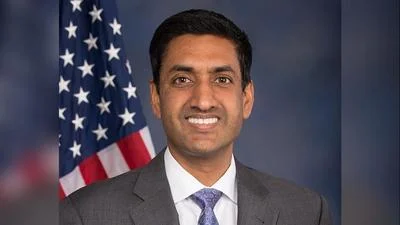John Taylor, Professor of Economics at Stanford University and developer of the "Taylor Rule" for setting interest rates | Stanford University
John Taylor, Professor of Economics at Stanford University and developer of the "Taylor Rule" for setting interest rates | Stanford University
The deans of Stanford's Doerr School of Sustainability, Graduate School of Education, and School of Medicine shared their strategic priorities during a recent Faculty Senate meeting. They emphasized the importance of interdisciplinary research and education to address future challenges.
Dean Arun Majumdar outlined the Stanford Doerr School of Sustainability's (SDSS) initiatives since its launch in 2022. The school has added 19 faculty members and focuses on eight "Solution Areas" with substantial funding for research teams. Majumdar announced plans for a Sustainable Societies Institute to integrate humanities into sustainability efforts. "If you want to transform a city, this is not just about engineering, infrastructure … this is about people and about culture," he stated.
School of Medicine Dean Lloyd Minor highlighted opportunities in life sciences through the convergence of biology, biomedicine, technology, and information sciences. The Responsible AI for Safe and Equitable Health (RAISE) initiative collaborates with the Stanford Institute for Human-Centered Artificial Intelligence to responsibly incorporate AI into healthcare. Minor also expressed the school's commitment to establishing a dedicated cancer center at Stanford: “We believe there should be [a cancer center] and we believe it should be at Stanford.”
Graduate School of Education Dean Dan Schwartz discussed revitalizing faculty and engaging in multidisciplinary work. The GSE is conducting seven faculty searches amid retirements while emphasizing data-driven approaches to education. A new building will house the Stanford Accelerator for Learning, which Schwartz noted has garnered student enthusiasm through seed grant competitions.
Provost Jenny Martinez updated on negotiations with the Stanford Graduate Workers Union following a strike authorization vote due to unresolved economic issues. Planning continues in anticipation of potential strike actions.
The Faculty Senate amended a previous motion regarding academic freedom reviews and shared resolutions supporting student-athletes post-Pac-12 dissolution.
In related developments, an AI Tinkery was launched at the Stanford Accelerator for Learning to help educators explore artificial intelligence applications in teaching.




 Alerts Sign-up
Alerts Sign-up